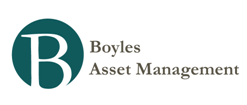Money and Finance
- Beijing’s New Leaders Are Right To Hold Back - By Michael Pettis
The world is struggling to rebalance its great savings imbalances and is not advancing much. In Europe, and as I discussed in my very long May 11 blog entry, it seems that Germany is still unable to force though the adjustments needed in internal demand...
- John Mauldin: The Good, The Bad, And The Greek (risks)
Greece was (and is) the first real test of the euro. Until the Greek crisis, there was no real need for any eurozone country to actually write a check for any other member. Ireland obligingly shouldered the responsibility for its own bad bank debts, paying...
- Hussman Weekly Market Comment: A Brief Primer On The European Crisis
With regard to the problems in Europe, investors have taken a great deal of hope from the promise of coordinated central bank "liquidity" operations in the event of deterioration. The problem here, in my view, is that whatever amount of liquidity central...
- John Mauldin: Unintended Consequences
Let me introduce Mauldin's Rule of Thumb Concerning Unintended Consequences: For every government law hurriedly passed in response to a current or recent crisis, there will be two or more unintended consequences, which will have equal or greater negative...
- Hussman Weekly Market Comment: Whipsaw Traps
With respect to Europe's perceived "solution" to its debt crisis, the 50% write-down of Greek debt is appropriate (better than 21%, but probably still light), but it's not clear that this includes a writedown of Greek obligations to "official"...
Money and Finance
John Mauldin: Waving the White Flag
For quite some time in this letter I have been making the case that for the eurozone to survive, the European Central Bank would have to print more money than any of us can now imagine. That the sentiment among European leaders was that they were prepared for such a move was clear – except for Germany, which is haunted by fears of a return to the days of the Weimar Republic and hyperinflation.
When Germany agreed to a fixed monetary union and a European Central Bank, it was with the clear understanding that it would be run along the lines of the German central bank, the Bundesbank. The members of the Bundesbank and the German members of the ECB were most outspoken about the need for a conservative monetary policy that would keep a clamp on inflation.
However, as I have previously noted, the Bundesbank was a toothless tiger. Germany has two votes out of 23 on the ECB, and the loud drumbeat from most of Europe, which is experiencing the difficulty of austerity accompanied by too much debt, is for a far more accommodating ECB.
The simple fact is that Mario Draghi, the Italian president of the ECB, created €1 trillion euros to help fund European banks, which promptly turned around and bought their respective countrys' sovereign debt. Germany's Angela Merkel forced the Bundesbank to "play nice" and go along with what was seen as the only way to solve a growing banking crisis in Europe. Everyone breathed a sigh of relief, thinking that this at least bought a year during which things could be sorted out. But it turns out that a trillion euros just doesn't go as far as it used to. The "relief" lasted about a month. The last few weeks have presented yet another budding crisis, as least as large as the last one. Where to get the next trillion?
This week the German Bundesbank waved the white flag. The die is cast. For good or ill, Europe has embarked on a program that will require multiple trillions of euros of freshly minted money in order to maintain the eurozone. But the alternative, European leaders agree, is even worse. Today we will look at the recent German shift in policy, why it was so predictable, and what it means. This is a Ponzi scheme that makes Madoff look like a small-time street hustler. There is a lot to cover.
- Beijing’s New Leaders Are Right To Hold Back - By Michael Pettis
The world is struggling to rebalance its great savings imbalances and is not advancing much. In Europe, and as I discussed in my very long May 11 blog entry, it seems that Germany is still unable to force though the adjustments needed in internal demand...
- John Mauldin: The Good, The Bad, And The Greek (risks)
Greece was (and is) the first real test of the euro. Until the Greek crisis, there was no real need for any eurozone country to actually write a check for any other member. Ireland obligingly shouldered the responsibility for its own bad bank debts, paying...
- Hussman Weekly Market Comment: A Brief Primer On The European Crisis
With regard to the problems in Europe, investors have taken a great deal of hope from the promise of coordinated central bank "liquidity" operations in the event of deterioration. The problem here, in my view, is that whatever amount of liquidity central...
- John Mauldin: Unintended Consequences
Let me introduce Mauldin's Rule of Thumb Concerning Unintended Consequences: For every government law hurriedly passed in response to a current or recent crisis, there will be two or more unintended consequences, which will have equal or greater negative...
- Hussman Weekly Market Comment: Whipsaw Traps
With respect to Europe's perceived "solution" to its debt crisis, the 50% write-down of Greek debt is appropriate (better than 21%, but probably still light), but it's not clear that this includes a writedown of Greek obligations to "official"...

